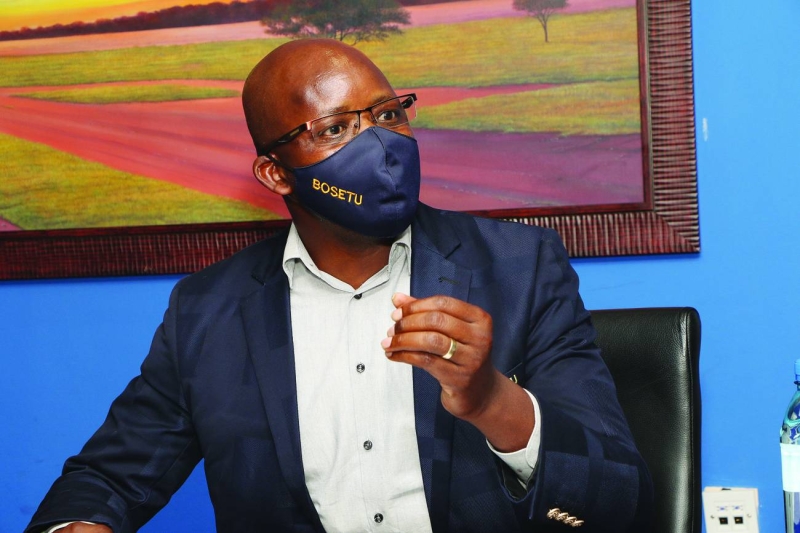Unions urge gov't to guard against job losses
Chakalisa Dube | Tuesday April 26, 2022 06:00


President Mokgweetsi Masisi recently announced that government will merge some of the state-owned enterprises while others will be privatised. Masisi also announced the creation of two new ministries in a bid to boost the efficiency of his government.
Amongst parastatals that would be merged are the Citizen Entrepreneurial Development Agency and Local Enterprise Authority. Botswana Savings Bank and the Botswana Accountancy College will be amongst others to be privatised, as part of adding value to private sector growth.
In his address, the President explained that the number of parastatals has grown over the years and some of them have similar roles. He explained that these factors have had a cumulative impact on the efficiency of some parastatals, which is why a merger and privatisation cannot be avoided.
But the government’s plan to privatise and merge some of the parastatals comes at a time when the economy is bleeding wrought by the COVID-19 pandemic and job losses. Since the State of Public Emergency, which prevented companies from retrenching workers was lifted last September, businesses have been shedding jobs (as part of their efforts to countering the impact brought by the pandemic).
Just recently government announced that over 400 companies are on the verge of retrenching. In addition, government stated that the said companies will shed close to 800 jobs. Now, BOFEPUSU has pleaded with government to tread with caution when merging and privatising some of the state-owned entities.
“We warn government that if this process (merging and privatising some parastatals) is not properly handled it would result in further ejecting of a large number of Batswana into the street and obviously escalating the unemployment rate. Already Botswana has an unemployment rate of about 34%,” BOFEPUSU secretary-general, Tobokani Rari told The Monitor over the weekend.
“Government should devote more effort towards ensuring that more jobs are not lost as a result of the process,” he added.
Rari also expressed concern that trade unions were not consulted when a decision to merge and sell some of the parastatals was hatched.
“Our view is that a rationalisation (merging and privatisation) process should involve a thorough process of consultation so that stakeholders could have an input on whether what the powers that be are thinking of would bring improved service delivery or not. Stakeholders such as federations of trade unions need to be consulted even more in that such processes of rationalisation might result in huge job losses,” he added.
Rari stated that the federation would contact government to ensure that members of their affiliate trade unions that organise in government parastatals that would be affected are meaningfully engaged (when the process commences).
The other view of the federation is that government unnecessarily created new ministries. Government ministries have been increased from 16 to 18.
“This is bloating the executive unnecessarily. This has a danger of killing democracy and the balance of power as the front bench would always dominate the backbench and literally make the legislature defunct. Parliament would only serve to rubber-stamp the decisions of the Executive.”
Botswana Federation of Trade Unions (BFTU) secretary-general, Thusang Butale also said they were not consulted when a decision to merge as well as privatise some parastatals and the creation of new ministries was taken.
“We are concerned that the merging of parastatals will lead to massive job losses. Already many Batswana have lost their jobs.” The BFTU secretary-general further stated that Masisi could have given timelines for implementation regarding merging parastatals.
“We also missed an opportunity to hear from the President what kind of inefficiencies have been prevalent in various ministries (which warranted the rationalisation),” he said.
Butale said that BFTU welcomes the creation of the Ministry of Entrepreneurship and the federation’s hope is that it will be used to drive employment creation.
“The other key question we have as a federation is how the new ministries will be resourced this year since the budget was already done?”
